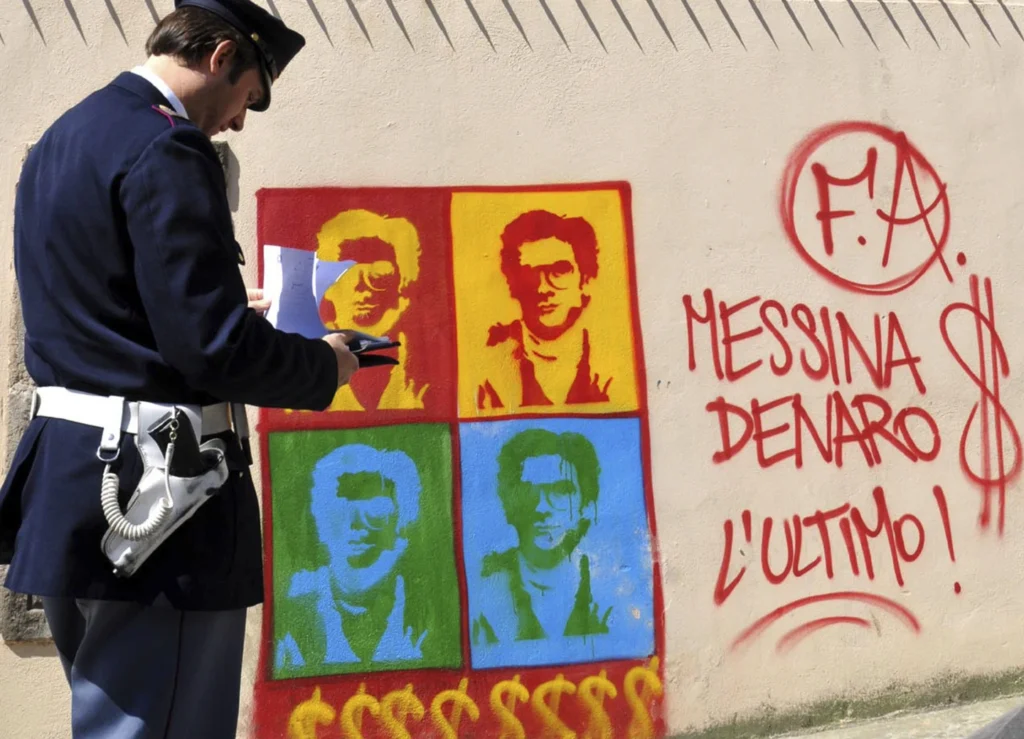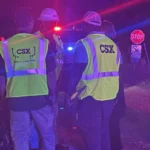Death of Mafia Leader in Prison
L’AQUILA, Italy (AP) — After decades evading law enforcement, Matteo Messina Denaro, known for orchestrating some of the Sicilian Mafia’s gravest crimes, passed away early Monday in a prison hospital ward, just months following his apprehension as Italy’s top fugitive, according to Italian officials.
Hospital Surveillance and Health Condition
Reports from Rai state radio at L’Aquila hospital in central Italy indicated that the intense police surveillance, initially posted at his hospital room, was redirected to the morgue after his death around 2 a.m. Medical sources revealed he had been in a coma since the preceding Friday.
Official Statement and Request for Autopsy
The L’Aquila prosecutor’s office released a concise statement on his passing, omitting the exact time of death. However, they, along with the prosecutor’s office in Palermo, Sicily, are seeking an autopsy, despite widespread knowledge of Messina Denaro’s severe health condition.
Funeral Preparations
Italian media sources anticipate that his interment will occur later this week in Sicily.
Messina Denaro’s Reign and Evasion
Regarded by detectives as one of the Mafia’s most dominant leaders, 61-year-old Messina Denaro spent a significant portion of his three decades as a fugitive in western Sicily, his bastion. This evasion was made possible largely by the assistance of sympathetic locals. His capture on January 16, 2023, came as a result of his requirement for colon cancer treatment.
Investigation and Apprehension
For years, investigators pursued him and unearthed evidence of him undergoing chemotherapy at a Palermo clinic using a pseudonym. By delving into Italy’s national health system records, they pinpointed his location and apprehended him during one of his treatment sessions.
Historical Arrest Parallels
His capture occurred exactly 30 years and one day after the arrest of the Mafia’s paramount leader, Salvatore “Toto” Riina, on January 15, 1993, in a Palermo residence following years of concealment. Subsequent to this, Messina Denaro opted to go underground in that same year.
Crimes and Trials
Throughout his time as a fugitive, Messina Denaro faced in-absentia trials and was found guilty of numerous homicides. Among these crimes was his involvement, alongside other Cosa Nostra leaders, in orchestrating the 1992 bombings that took the lives of Italy’s foremost anti-Mafia prosecutors: Giovanni Falcone and Paolo Borsellino.
Hope for Cooperation and Subsequent Disappointment
Authorities had nurtured a faint hope that he might cooperate, shedding light on the mysteries of Cosa Nostra. However, as per Italian news sources, Messina Denaro promptly signaled his refusal to divulge any information upon his arrest.
Life Post-Capture
Life Post-Capture With his demise, he “carried away the clandestine truths” of the Cosa Nostra, as noted by state radio. Subsequent to his capture, Messina Denaro was incarcerated under high security in L’Aquila, a town nestled in Italy’s central Apennine mountains. Here, he continued his chemotherapy treatments for colon cancer. However, following two surgeries and a deteriorating health condition in recent weeks, he was relocated to the prison ward of the hospital, where he eventually passed away.
Predecessors in the Sicilian Mafia
Messina Denaro’s reticence mirrored that of Riina and the Sicilian Mafia’s other chief leader, Bernardo Provenzano. Provenzano was apprehended in a Corleone, Sicily farmhouse in 2006 after a record-breaking 37 years of evasion, marking the lengthiest period a Mafia boss had remained elusive. Following Provenzano’s detention, law enforcement concentrated their efforts on Messina Denaro, who remained at large despite multiple alleged sightings.
Crackdown and Atrocities
The crackdown on the Sicilian Mafia, ignited by the murders of Falcone and Borsellino — attacks that also claimed the lives of Falcone’s spouse and several of their police escorts — led many mid-tier Mafia leaders and henchmen to turn state witnesses. Among the many heinous crimes attributed to Messina Denaro was the gruesome murder of a turncoat’s young son. The child was kidnapped, strangled, and his remains were dissolved in acid.
Other Orchestrated Bombings
Furthermore, Messina Denaro, alongside other leading figures of the Cosa Nostra, was found guilty of orchestrating the 1993 bombings that hit two Roman churches, the Uffizi Galleries in Florence, and an art institution in Milan. The Florence and Milan assaults resulted in ten fatalities.
Motivations Behind the Attacks
According to informants, the bombings in these prominent tourist destinations were strategically planned to coerce the Italian government into moderating the stringent incarceration terms for convicted mob members.
Prosecutor’s Proclamation on Denaro’s Capture
Upon Messina Denaro’s arrest, Palermo’s leading prosecutor, Maurizio De Lucia, proclaimed, “The last orchestrator of the massacres is now in custody.”


